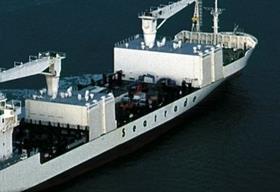
The first half of 2013 has brought the start of a long-awaited improvement for the specialised reefer industry according to a new report by Drewry’s. It shows that time-charter rates have improved and scrapping has shrunk the fleet to more manageable levels.
Seaborne perishable reefer cargo has increased from 66.8m tonnes in 2002 to 92.4m tonnes in 2012, equivalent to a combined annual growth rate of 3.3 per cent. The exotic fruit category (pineapples, kiwifruit and avocados) registered the highest percentage growth at 9.1 per cent, with volumes reaching 4.5m tonnes in 2012.
The report’s editor, Kevin Harding, said: “it is important to note that the import patterns have changed considerably during the past decade. Western Europe has declined to a 38 per cent share of worldwide imports – although still importing 66m tonnes of cargo in 2012. Eastern Europe’s importance has grown from an 11 per cent share in 2002 to a 13 per cent share in 2012 – with cargo tonnage increasing by 76 per cent over this period.”
The report said that despite many containership operators suffering losses over the decade, collectively the industry managed to return a small profit for 2012. With a fleet of 77 vessels, Seatrade is the largest reefer operator in the specialised reefer segment providing over 51m ft3 of on-deck and under-deck capacity. However, this was 12.5 per cent less capacity than a year ago.
Summarising the state of the market, Harding said: “the two modes of transport have experienced mixed fortunes. With the continued shrinking of the specialised reefer fleet it is unavoidable that increase cargo volumes, no matter how small, will have to be shipped by reefer container vessels. The market share between the two modes continues to move in favour of the containership and, with the specialised reefer orderbook remaining at zero (at least for the time being), it is inevitable that this trend will continue.”



